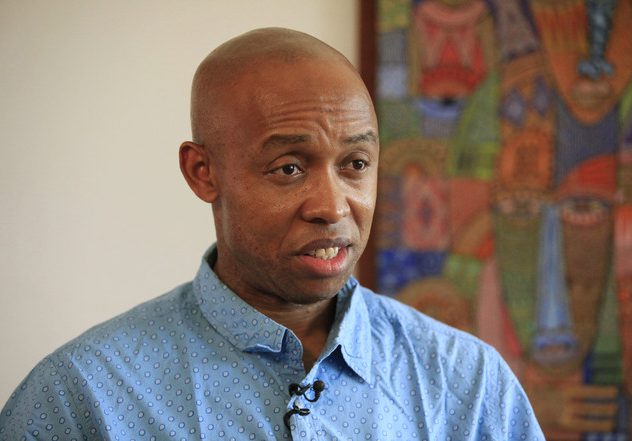In response to the controversies surrounding the Counter Subversion Bill and other related draft legislation, the Speaker of the House of Representatives, Abbas Tajudeen, on Wednesday, withdrew the piece of legislation.
The clauses of the bill, which had only passed for first reading, surfaced in both traditional and online media, sparking controversies.
The bill proposed a 25-year imprisonment or N10m fine, or both, for any person convicted of making a statement or taking an action that leads to separatist agitation or inter-group or sectional conflict in the country.
The bill also stipulates that anyone found guilty of destroying national symbols, refusing to recite the national anthem and pledge, defacing a place of worship with intent to incite violence, or undermining the Federal Government shall face a fine of N5m, a 10-year prison sentence, or both.
Similarly, sections 2, 5, 6, and 10 of the proposed legislation state that any person who engages in activities that foster mutual suspicion, mistrust, or intolerance, leading to conflict and violence that threatens Nigeria’s corporate existence, peace, and security, commits an offence and is liable to a fine of N5m, a 10-year prison term, or both.
It noted, “A person who forcefully takes over any place of worship, town hall, school, premises, public or private place, arena, or a similar place through duress, undue influence, subterfuge or other similar activities, commits an offence and is liable on conviction to a fine of N5m or imprisonment for a term of 10 years or both.
“A person who professes loyalty, pledges or agrees to belong to an organisation that disregards the sovereignty of Nigeria, commits an offence and is liable on conviction to a fine of N3m or imprisonment for a term of four years or both.”
The bill added that, “A person who receives financial or political support from a foreign organisation, group or country that is not compatible with the interest, development, security and progress of Nigeria, commits an offence and is liable on conviction to a fine of N15m or imprisonment for a term of 20 years or both.”
Sections 12, 13, 14, 15, 17, and 20 of the bill stipulate that any individual, group, or organisation involved in activities that undermine national security, disrupt community harmony, disturb peaceful coexistence, or impede law and order will be deemed to have committed an offence.
Upon conviction, the penalty is a fine of N3m, imprisonment for up to five years, or both.
The bill further proposed that: “A person, group or organisation that persistently disregards, disobeys, or disrespects constituted authority, rules, regulations, order or contravenes the law wilfully, commits an offence and is liable on conviction to three years imprisonment at the first instance, and seven years for a subsequent offence or to a fine of N5m or both.
“A person who habitually violates the law, refuses or prevents arrest, disrupts legal processes or proceedings, engages in contrary behaviour or persistent and recalcitrant, defiance and rebellion against constituted authority, commits an offence and is liable on conviction to a fine of N5m or seven years imprisonment or both.”
“A person who establishes, creates, operates or maintains, funds, supports or assists a paramilitary group, guard, brigade, organisation, corps, union, militia, cult or bandit group under whatever name or guise, except established by-laws passed by the National Assembly or State House of Assembly, commits an offence and is liable on conviction to a fine of N10m or 15 years imprisonment or both,” it noted further.
Furthermore, the bill sought to make it an offence for anyone to “own, possess, produce, distribute, import, handle, use military, police or intelligence agency’s uniforms, emblems or accoutements,” stipulating a fine of N2m or two years imprisonment or both.
Earlier on Wednesday, the Speaker had defended the Counter Subversion Bill, stating it “aims to strengthen Nigeria’s anti-terrorism framework by addressing subversive activities carried out by various groups, including associations, organisations, militias, cults, bandits, and other proscribed entities.”
However, later on the same day, the Speaker, in a statement by his Special Adviser on Media and Musa Kirishi, announced the withdrawal of the bill, saying his decision followed “extensive consultations” with a broad range of stakeholders and a careful consideration of the nation’s current circumstances.
“Speaker Abbas Tajudeen, a champion of the people’s interests, has always prioritised listening to the citizens and fostering unity. His decision reflects his commitment to ensuring that the House remains truly the people’s house.
“He acknowledges the significance of the concerns raised and the attention the bill has garnered, reaffirming that he will never support any action that might disrupt the peace and unity of our nation.
“The public is hereby notified of the withdrawal of the Counter Subversion Bill and other related ones introduced on July 23, 2024,” the Speaker’s media office said.
Earlier on Wednesday, the Take It Back Movement, which spearheaded the recent nationwide #EndBad Governance protest, had condemned the Counter Subversion Bill 2024, saying it threatened Nigerians’ fundamental rights.
In a statement co-signed by its National Coordinator, Juwon Sanyaolu, and Public Relations Officer, Stephen Olabiyi, the group said the bill contradicted the core principles of freedom of speech, movement and assembly which underpin democracy.
The TIBM demanded that the bill be discarded and not be passed into law, while charging the House of Representatives to prioritise more critical concerns, such as widespread hunger, and the pervasive poverty, which had severely impacted the people of Nigeria.
“We at the Take It Back Movement vehemently condemn the proposed Counter Subversion Bill introduced on August 14th, 2024, by the Tajudeen Abass, Speaker of the House of Representatives.
“This bill threatens the fundamental rights of Nigerians, and it’s seeking to impose excessive penalties on citizens for refusing to recite the national anthem, and also criminalising civil actions deemed subversive to the government.
“This proposed legislation contradicts the core principles of freedom of speech, freedom of assembly, and the freedom of demonstration, that underpin any democratic society.
“Hence, we demand that this bill should be discarded and not be passed into law, rather the government should redirect their efforts toward tackling the underlying factors that contribute to discord and strife within our country,” the group said.

 3 months ago
36
3 months ago
36














 English (US) ·
English (US) ·